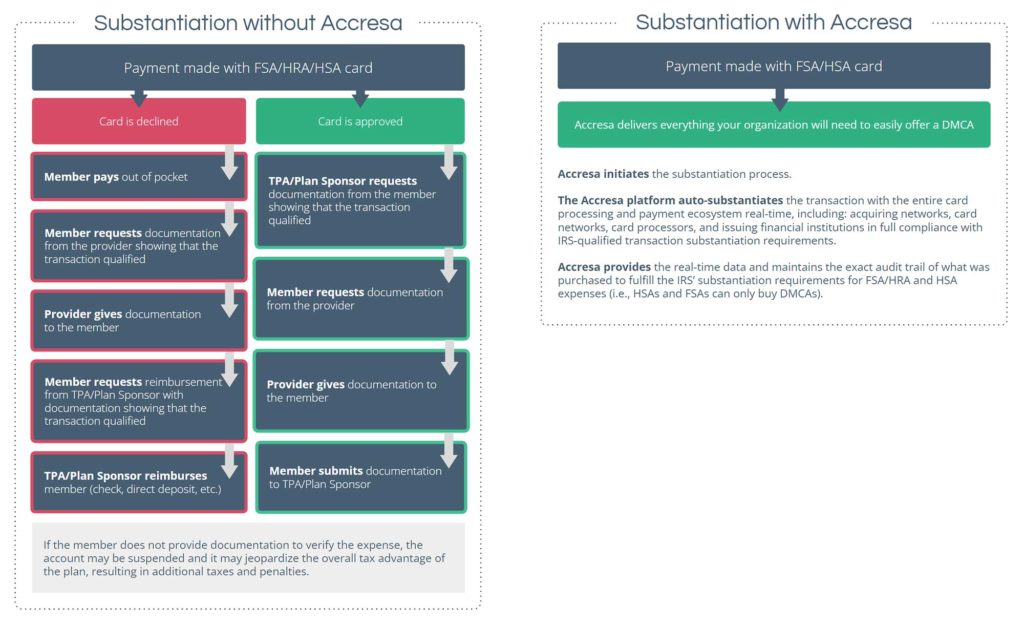Subscription care simplifies the payment of care and improves the provider-patient relationship.
Rather than charging a fee for every visit, subscription care providers charge a recurring monthly fee to cover most primary care, dental, or wellness services without billing insurance. Subscription care incentivizes providers to continue delivering the best care possible, while empowering patients to take a more proactive approach to their health.

The What and Why of Subscription Care
In a traditional healthcare set up, providers aren’t as incentivized to be proactive about patient health. The more times a patient comes in, the greater the revenue opportunity for the practice. The reverse of that is patients also aren’t incentivized to be proactive about their own health – if they go to the doctor for every little thing, the more money is flying out of their pocket. So people either wait until a yearly checkup, or until something is really bothering them. Subscription healthcare turns that traditional fee-for-service model on its head. By paying a set monthly subscription rate, it changes the incentives of the providers to be more proactive in managing the patient’s health. For patients, they’re incentivized to take advantage of the program and thus take charge of their health.
“Subscription Care gives us the ability to offer a modern convenience and level of service on-demand that consumers are expecting in the market today”
Jenny Reed
Senior Vice President for Value-Based Care,
Baylor Scott and White Health
Subscription Care Models
| Direct Medical Care Arrangement | Advanced Primary Care or Direct Primary Care | Virtual Primary Care | |
|---|---|---|---|
| Preventive Services Defined by CMS |

|

|

|
| Annual Physical |

|

|
|
| Chronic Care Management |

|

|

|
| Imaging |

|
||
| Immunizations |

|
||
| HSA / FSA Compliant |

|

|
|
| HRA Compliant |

|

|

|
*Dependent on plan
Subscription Care Plan Types
Medical
• Direct Medical Care Arrangement
• Direct Primary Care
• Virtual Care
Dental & Vision
• Dental
• Vision
Mental Health
• Therapy
• Behavioral Health
• Addiction
• Counselling
Complementary Medicine
• Chiropractic
• Wellness Program
• Pain Management
• Physical Therapy
Direct Primary Care (DPC) is an alternative payment model that seeks to improve access to quality care and build stronger relationships between physicians and patients. DPC practices charge periodic, flat fees for services and do not bill third parties on a fee-for-service basis.
A Direct Medical Care Arrangement (DMCA) is a monthly membership that an employer or patient can set up with a physician. The membership includes a defined set of medical services for a fixed annual or periodic fee that can be paid for with pre-tax dollars from a flexible spending account (FSA), health savings account (HSA), or health reimbursement arrangement (HRA).
Virtual Primary Care (VPC) gives members access to unlimited virtual visits with a primary care physician for a flat, monthly fee. Unlike typical telemedicine services that match patients to the next available physician, Virtual Primary Care lets members choose their own physician based upon their needs.
Consumer Driven Healthcare + Subscription Care: Compliance Overview
| Flexible Spending Account (FSA) | Health Spending Account (HSA) | Health Reimbursement Arrangement (HRA) * | |
|---|---|---|---|
| Direct Medical Care Arrangement (DMCA) |

|

|

|
| Direct Primary Care (DPC) |

|
||
| Virtual Primary Care |

|

|

|
| Dental |

|

|

|
| Vision |

|

|

|
| Therapy |

|

|

|
| Behavioral Health |

|
||
| Addiction |

|

|

|
| Wellness Program |

|

|

|
*HRA plan design may impact eligibility
DMCA Plan Substantiation Compliance With Accresa vs. Without
With Direct Medical Care Arrangements (DMCA), members are eligible for yearly physicals but are ineligible for vaccines or imaging. Unlike DPC, DMCAs are HSA and FSA compliant and require adherence to IRS substantiation regulations. Accresa is the only platform that can auto-substantiate FSA/HRA/HSA transactions for DMCA memberships.

Interested in learning more about DMCA programs and how Accresa can help you manage the substantiation requirements? Contact us today.
The Benefits of Subscription Care
The subscription care model improves the working capital and reduces the cost of payment acquisition for providers. This leads to more efficient price points for the employer and/or patient because the payments are processed on a monthly subscription and inclusive of care. With the traditional fee-for-service model, revenue is only generated when a patient is seen. The complexities of coding, billing, charting and tracking AR creates a high cost/low return revenue model for the provider that further complicates the stress and dissatisfaction with primary care. Subscription care brings efficiency and stable revenue to medical practices that makes patients who are engaged with subscription care more valuable to recruit and retain.
The Bottom Line
A monthly subscription model reduces costs and operational expenses for the provider, and for the employer/patient, they’re able to budget monthly for healthcare, without having to guess at the cost of services.

